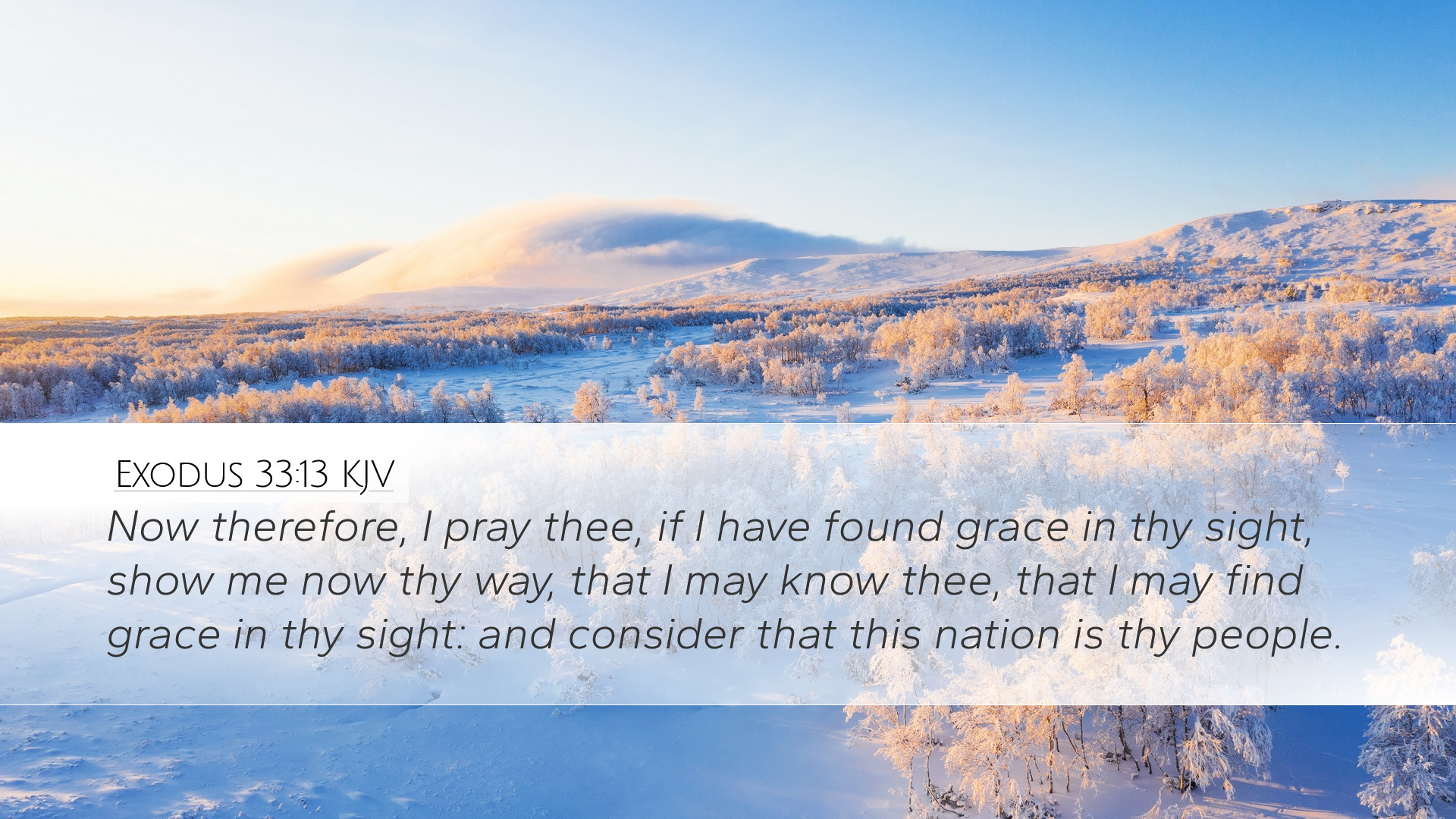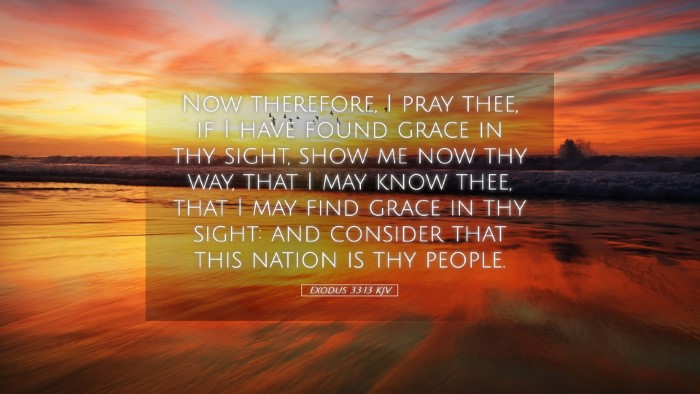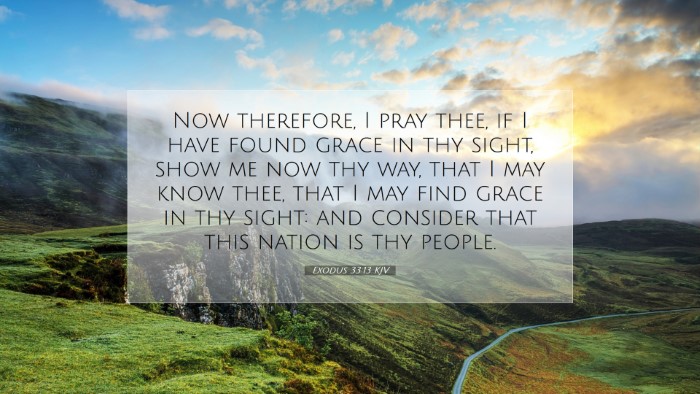Exodus 33:13 - A Summary of Commentary Insights
Exodus 33:13 states: "Now therefore, I pray thee, if I have found grace in thy sight,
shew me now thy way, that I may know thee, that I may find grace in thy sight: and consider
that this nation is thy people." This verse reflects Moses' earnest plea for guidance
and assurance from God as he leads the people of Israel.
Contextual Background
In the previous chapters, the Israelites had sinned grievously by creating and worshiping the
golden calf. God's anger burned against them, and the covenant with Israel was in jeopardy.
Moses, as the mediator, intercedes for the people, seeking God’s mercy and favor. This sets
the stage for his request in Exodus 33:13.
Moses' Plea for Divine Guidance
Moses’ request to know God's ways is pivotal. He recognizes that understanding God’s ways
is vital for his leadership.
- Grace in Action: Moses demonstrates humility as he acknowledges God’s grace.
It is essential for leaders to continually seek divine guidance, understanding that they rely
on God's favor.
- The Nature of God: Moses desires intimacy with God, seeking to know Him more
deeply. This aligns with the biblical idea that knowledge of God leads to spiritual growth.
- Intercession: Moses stands in the gap, displaying a characteristic of true
leadership. He does not seek personal elevation but the well-being of the nation he leads.
Theological Implications
This verse teaches significant theological principles applicable to modern faith practice,
particularly concerning the nature of God’s guidance and the believer’s relationship with Him.
- Divine Guidance: The request for God's ways raises the importance of seeking
divine direction in one’s life, a core theme in the life of a believer.
- Relationship Over Ritual: Moses places knowing God above following rules.
This reflects the New Testament perspective of a relational faith, not merely ritualistic.
- National Responsibility: The prayer acknowledges the collective nature of
the covenant community. Pastors and leaders must be attuned to the spiritual state of their
congregations.
Commentary Insights
Matthew Henry: Henry posits that Moses’ plea demonstrates the importance of
personal communion with God. He emphasizes that understanding God’s character aids in fulfilling
one's duties faithfully. Henry highlights how Moses’ desire to see God's ways reflects a deep
spiritual desire for guidance, advising leaders to prioritize prayer in their decisions.
Albert Barnes: Barnes expands on the notion of finding grace by illustrating
that Moses is seeking a renewed experience of God’s favor. He notes that knowing God’s ways
intimately involves a heart that is obedient to His will. Barnes argues that this passage exemplifies
the believer’s journey toward spiritual maturity and understanding through persistent inquiry
and relationship with God.
Adam Clarke: Clarke emphasizes the significance of Moses' humility in seeking
not only guidance but a deeper knowledge of God. He interprets "thy way" as both the path the
Israelites should follow and the moral and ethical dimensions of God's leadership. Clarke warns
that true knowledge of God will manifest in changed behavior, a vital component for anyone
desiring to lead in faith.
Applications for Pastors and Leaders
Drawing from the insights of these commentaries, there are several applications for church leaders
and individuals seeking to grow in their faith.
- Prioritize Prayer: Leaders must make prayer a cornerstone of their leadership.
Just as Moses sought guidance, prayer should be a vital component of decision-making.
- Seek Holistic Knowledge of God: Emphasize knowing God deeply and
relationally, rather than just through doctrines or rituals.
- Intercessory Leadership: Like Moses, leaders should intercede not only for their
personal needs but continually for their congregations, recognizing their collective responsibility.
- Encourage Discipleship: Foster an environment where congregants can pursue
a deeper understanding of God's ways, encouraging inquiry and discussion.
- Model Humility: Exhibit humility in leadership that reflects an awareness of one’s
dependence on God's grace.
Conclusion
Exodus 33:13 serves as a profound reminder of the necessity of divine guidance in leadership.
The emphasis on seeking to know God's ways resonates with the heart of biblical leadership.
As pastors, students, and scholars reflect on this verse, may they strive for a closer
relationship with the Lord, realizing that true understanding comes from a heart that seeks
God's guidance above all else.


